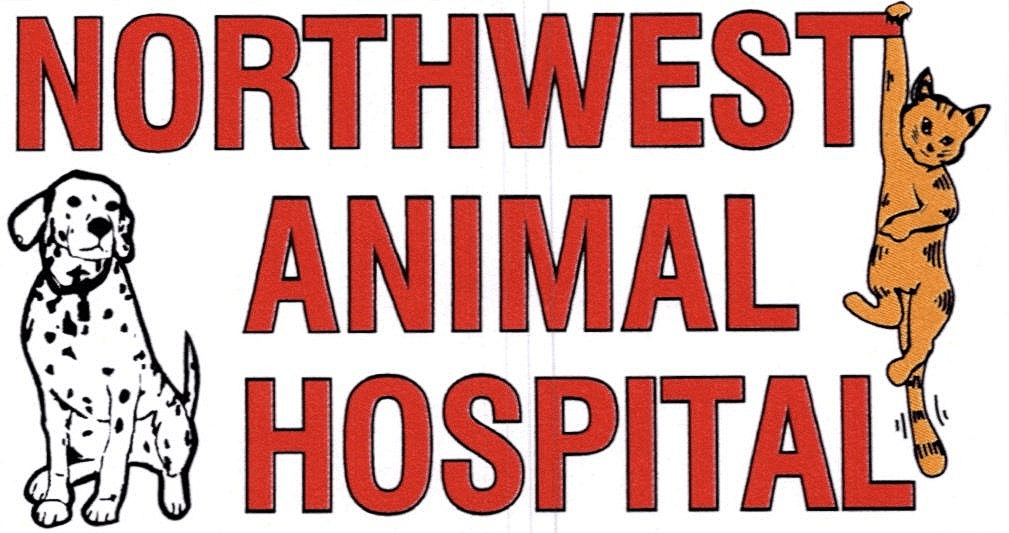Adult Animal Care
- Almost 50 Years of Experience
- Compassionate, Affordable Health Care for Your Pets
Hours:
Ongoing Care for Your Pet
Maintain your adult pet's good health with continuing medical care from Northwest Animal Hospital, including boosters on vaccines, ongoing prevention of worms and careful attention to animal weight.
Annual physical examinations provide early detection and treatment of problems. Fecal exams, heartworm testing and dispensing of preventive medications are handled at each annual visit.
Basic Medical Care for Adult Dogs
- Annual physical examinations and appropriate vaccine boosters (3-year duration rabies vaccines may be given after the first yearly booster)
- Annual heartworm testing; continuing monthly prevention
- Annual fecal exam to check for intestinal worms
- Dental cleanings under anesthesia as needed to prevent painful periodontal disease and tooth loss
- Maintenance of normal body weight and prevention of obesity
Basic Medical Care for Adult Cats
- Annual physical examinations and appropriate vaccine boosters (3-year duration rabies vaccines may be given after the first yearly booster)
- Annual fecal exam to check for intestinal worms
- Dental cleanings under anesthesia as needed to prevent painful periodontal disease and tooth loss
- Maintenance of normal body weight and prevention of obesity
Heartworm Treatments for Dogs and Cat
Heartworms are parasites that live in your pet's heart. They are transmitted by mosquitos and can grow to 14 inches in length. Over time, they can cause heart failure, as well as liver and kidney damage.
In our area, heartworms are commonly detected in dogs that are not on preventive medication. We recommend beginning monthly heartworm prevention (we carry Interceptor and Heartgard Plus) between 6 and 12 weeks of age and annual heartworm testing for dogs over 6 months old.
Cats also can get heartworm disease, but it affects them differently. Heartworm prevention is available for cats. We carry liquid medication, Revolution, which is applied to the skin and is combined with flea prevention.
More information is available from the AHS and
Know Heart Worms.
Help Control Your Pet's Weight
Keeping your pet at a healthy weight is another tremendously important preventive medical measure.
As many as 30% of the pet population is seriously overweight or obese. Obesity contributes to many of the same problems in pets that it does in people, including heart disease, diabetes and joint problems. Studies show that obese pets will live up to two years less than pets at a healthy weight.
Be a responsible pet owner and let us help you keep your pet's weight under control. Let us advise you about how to feed your pet to prevent obesity or help your overweight or obese pet shed the extra pounds.
In some cases, simple dietary changes and increased exercise are sufficient. In other cases, a prescription diet and frequent weight checks are required.
Don't Forget Your Pet's Dental Care
Dental care is very important for your pet. If unmanaged, dental problems can lead to bad breath, mouth pain and loss of teeth. Ultimately, chronic dental disease can result in heart or kidney disease.
At Northwest Animal Hospital, we offer dental prophylaxis that includes cleaning, polishing and extractions when needed.
Protect Your Pet With Microchip Identification
At Northwest Animal Hospital, we use HomeAgain microchips to provide a permanently embedded means of identification if your pet should be lost.
Most veterinary clinics, humane societies, and shelters have scanners that can read such chips. The scanner is able to get a number from the chip, which can then be identified through a national registry. The number is traced back to the owner and the veterinarian that placed the chip.
Chip placement is done by a simple injection. It can be done during a routine office visit or during a surgical procedure, such as a spay/neuter or a dental cleaning. The chip number then must be registered with the national database by the owner.
Questions about microchipping or any other of our services? Call (402) 572-1280 or visit us today. We're always ready and willing to talk about you and your pet!
Call Today
for affordable and compassionate adult pet care services
(402) 572-1280
See us for healthy
Hills Science Diet and
Royal Canine pet foods.



